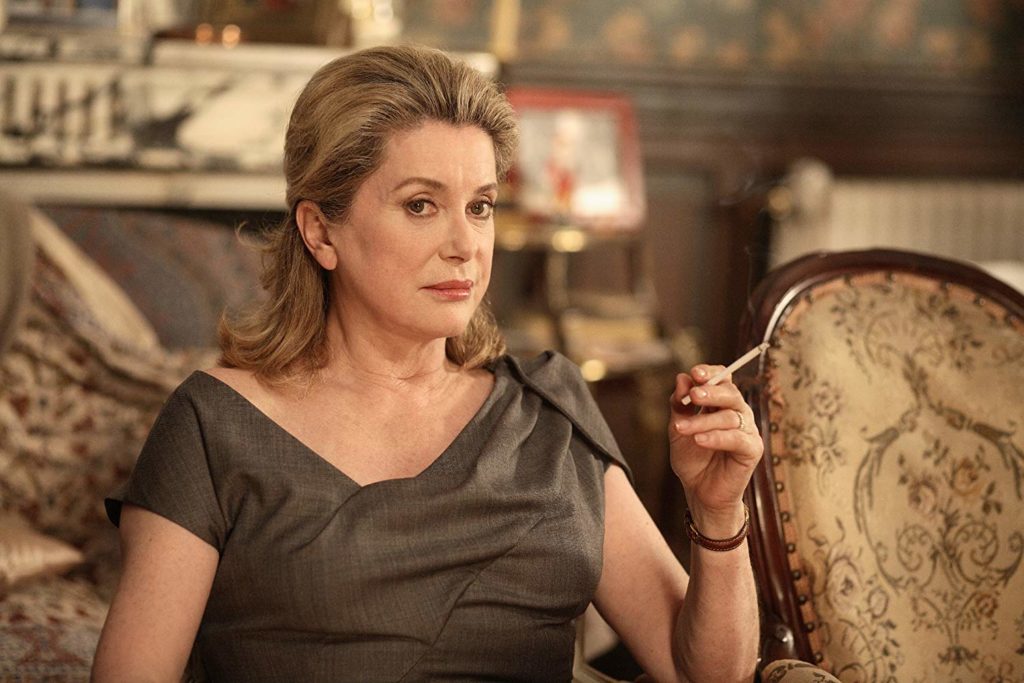The Truth
by Matt Weiner
Actors getting lost in a role can become the stuff of legends, or the butt of jokes—as Olivier’s advice allegedly went to Dustin Hoffman, “Why don’t you just try acting?” In The Truth, director Hirokazu Kore-eda takes one of film’s most iconic actresses and sets to demolishing the notion that an artist could ever separate who they are from what they have to say.
The film is Kore-eda’s first foray outside of Japan, and a worthy follow-up to his masterful 2018 drama Shoplifters. The drama, also written by Kore-eda, has a lighter touch in The Truth, but it’s no less arresting thanks to a brilliant self-referential performance from Catherine Deneuve.
Deneuve plays Fabienne, an idol of French cinema now at a point in her life when she’s ready to look back on her storied career. Fabienne’s daughter Lumir (Juliette Binoche) has brought along her family from America to pay Fabienne a visit. When Lumir gets an early look at Fabienne’s memoir, she lashes out at the wide gulf between Fabienne the myth and Fabienne the mother, the one who pursued her art to the detriment of everything else in her life.
One family’s drama becomes a delightful interrogation of memory and art. And as if the unreliable memoir weren’t enough to drive the point home, Fabienne is also currently filming a new movie against an up-and-coming actress playing her younger version.
The film’s quirky sci-fi twist forces Fabienne to face her younger self, and the grande dame of French cinema isn’t quite ready to relinquish her fading star power to what she sees as a poor imitation of her own youthful rise to celebrity.
Kore-eda blurs the lines even further by referencing Deneuve’s breakout years, specifically Belle de Jour, with posters and costumes dotting Fabienne’s house and still exerting a powerful hold on her sense of self-worth. (Ethan Hawke’s understated turn as Lumir’s bohemian husband Hank also feels like an alternate universe version of Jesse from the Before trilogy… but that might also just be Hawke’s natural “these are my ‘just chilling in France’ vibes.” Either way, the man is living his best life.)
The result is a family drama that manages to humanize the dysfunction without fully absolving anyone. Fabienne might be a legend, but she’s still only human. Living an entire life unmoored, unable to process anything in the moment without layers of artifice to mediate any real emotion, seems like it should be punishment enough.


